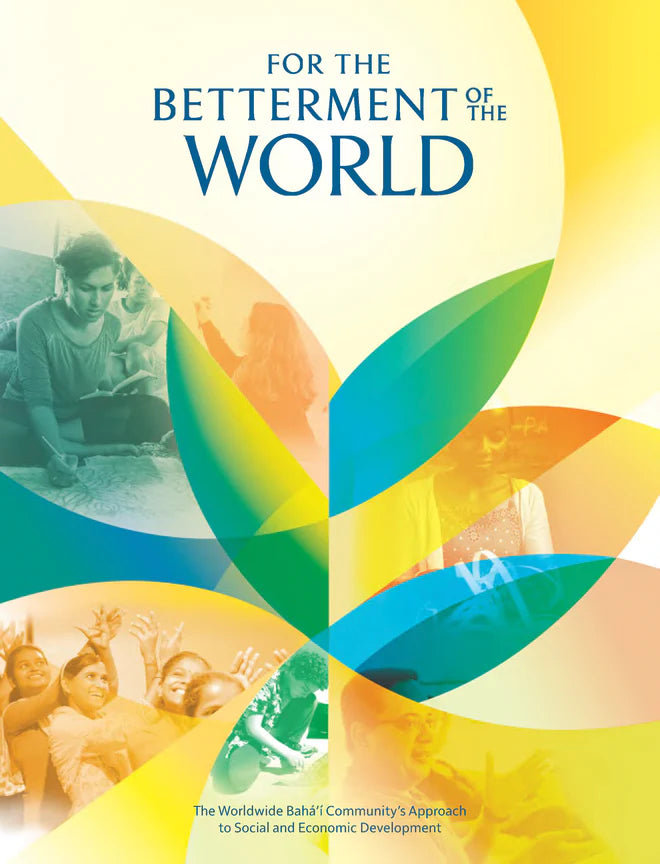The Bahá’í teachings underscore a remarkable prophecy that emanates from the rich cultural and spiritual heritage of India, positing that its people possess the capacity to illuminate the world through their spiritual wisdom and insights. This article endeavors to explore the intricacies of this prophecy, delving into its implications not only for individuals of Indian descent but also for the global community at large.
At the very core of the Bahá’í Faith is a commitment to unity and the eradication of prejudice. This foundational principle establishes a fertile ground for understanding the significance of India in the context of Bahá’í teachings. The multifaceted nature of Indian culture, a tapestry woven from diverse philosophical, religious, and artistic threads, serves as a microcosm for the broader human experience. In this light, the prophecy that India will produce individuals “so illumined as to enlighten the whole world” can be viewed as both a recognition of historical contributions and a call to future action.
The historical backdrop of India is replete with spiritual luminaries whose teachings and legacies resonate well beyond geographical confines. Figures such as Mahatma Gandhi and Rabindranath Tagore exemplify this spiritual richness. Gandhi’s commitment to non-violence and Tagore’s artistic genius illustrate India’s capacity to provide not only moral leadership but also creative inspiration to the world. Their philosophies have transcended national boundaries, serving as guiding beacons for countless individuals engaged in social and spiritual upliftment.
Moreover, the integration of varied spiritual traditions within India has engendered a unique environment conducive to profound dialogues. Hinduism, Buddhism, Sikhism, and Jainism, among others, contribute to an expansive spiritual milieu that encourages introspection and collective unity. Bahá’í teachings emphasize the unity of all religions, suggesting that the essential truths found across various faiths resonate with one another, facilitating a deeper understanding of the divine and the human condition.
This intercultural exchange invites consideration of the deeper reasons behind the Bahá’í fascination with India’s potential for enlightenment. At its essence lies a recognition of the spiritual capacities inherent within humanity. The belief that individuals can grow and evolve spiritually to illuminate the world aligns seamlessly with the Bahá’í teachings concerning the potential for personal transformation and collective progress.
The Bahá’í Faith advocates for a universal approach to spirituality that transcends ethnic and cultural divisions. Indian culture—with its historical plurality—affords a remarkable opportunity for the exploration of these universal truths. The teachings encourage not merely the preservation of cultural identity but also the celebration of commonalities that unite diverse groups. This ethos invites all who engage with Indian spiritual legacies to embrace their own unique heritages while simultaneously fostering a global understanding.
Furthermore, the prophecy regarding Indians enlightening the world can be examined through a lens of social service. Bahá’í teachings emphasize the importance of service to humanity, and in the context of India, this manifests in myriad forms. Those who embody the values of service and altruism naturally elevate their communities and inspire others. This principle is particularly relevant in contemporary society, wherein the world increasingly grapples with systemic challenges such as poverty, inequality, and environmental degradation. Indian individuals and communities, well-versed in the significance of service, are well-positioned to offer innovative solutions that could inspire global change.
In addition to social service, the concept of education plays a pivotal role in realizing the prophetic vision of Indians as global illuminators. Education, regarded as the cornerstone of personal and societal development within the Bahá’í framework, takes on a profound relevance in the Indian context. The emphasis on knowledge acquisition in Bahá’í teachings propels individuals toward self-actualization. As India continues to invest in education—both formal and informal—it cultivates a generation equipped to think critically, act compassionately, and contribute to the collective well-being of humanity.
Moreover, in a world characterized by disconnection and discord, the unyielding optimism of the Bahá’í prophecy speaks to a collective yearning for illumination. The idea that specific individuals might rise to foster understanding and coalescence among disparate factions invites hope. The Bahá’í community, alongside Indian peoples and their rich spiritual heritage, embodies this hope through actions that highlight the power of love and unity.
As the globe becomes increasingly interdependent, the illumination that stems from India’s diverse spiritual traditions could serve to catalyze profound transformations. The blending of spiritual insights with contemporary socio-political discourse may enable a reevaluation of values that underpin human interactions. Bahá’í principles advocate for constructive engagement in public affairs; thus, the contributions of spiritually enlightened individuals can offer new paradigms of exclusion unraveling into inclusivity and understanding.
In conclusion, the Bahá’í prophecy positing that Indians will illuminate the world embodies both a recognition of historical contributions and an exhortation for future engagement. This narrative invites not only individuals of Indian descent but all humanity to participate in the ongoing journey toward enlightenment. The teachings of the Bahá’í Faith serve as a guiding framework through which these possibilities can be realized, advocating for unity, service, and the pursuit of knowledge. As India continues on its trajectory of awakening to its prophetic role, the world stands on the precipice of a new era, one illuminated by the collective efforts of spiritually inspired souls committed to the betterment of the globe.
